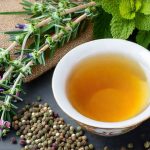Bladder health is often overlooked until issues arise – sudden urges, frequent trips to the restroom, discomfort, or even pain can significantly impact daily life. Many individuals seek conventional treatments for bladder problems, but increasingly, people are exploring natural approaches as complementary therapies or preventative measures. Herbal teas offer a gentle and holistic way to support bladder function, promoting overall wellness and potentially alleviating minor symptoms. However, it’s crucial to remember that herbal remedies aren’t one-size-fits-all solutions and should be approached with informed awareness and, ideally, in consultation with a healthcare professional.
The fascinating world of botanical medicine has long recognized the power of plants to influence bodily systems. Certain herbs possess properties that can soothe inflammation, strengthen bladder muscles, act as gentle diuretics (promoting healthy fluid balance), or even offer antimicrobial support – all beneficial for maintaining optimal bladder health. It’s important to understand that “natural” doesn’t automatically equate to “safe”; potential interactions with medications and individual sensitivities must always be considered. This article will delve into some of the most promising herbal teas known to support bladder wellness, exploring their properties and how they can be incorporated into a holistic lifestyle.
Herbal Allies for Bladder Support
Herbal teas aren’t merely pleasant beverages; they’re concentrated infusions of plant compounds that interact with our bodies in various ways. When choosing herbs for bladder health, it’s essential to consider the specific concern you’re addressing. Are you dealing with frequent urination? Inflammation? A weakened bladder muscle? Different herbs excel at targeting different issues. Some teas work best as preventative measures – supporting overall bladder function and resilience – while others may offer more immediate relief from mild discomfort. Purchasing high-quality, organic herbs from reputable sources is also critical to ensure purity and potency.
Many traditional herbal systems, like Traditional Chinese Medicine (TCM) and Ayurveda, have extensively utilized plants for urinary health for centuries. These ancient practices provide a rich foundation of knowledge that continues to inform modern herbalism. For example, TCM often focuses on balancing “Qi” – life force energy – within the Kidney meridian, which is closely linked to bladder function. Ayurvedic approaches emphasize restoring balance between Vata, Pitta, and Kapha doshas to address underlying imbalances contributing to urinary issues. Understanding these systems can further enhance your approach to herbal support, as detailed in articles exploring herbal techniques for kidney health.
It’s important to remember that herbal teas are often best used as part of a comprehensive approach to health, alongside adequate hydration, a balanced diet, stress management techniques, and regular exercise. Focusing solely on tea without addressing these other factors may not yield the desired results. Hydration is paramount for bladder health; aim for at least eight glasses of water daily.
Specific Herbal Teas & Their Benefits
Several herbal teas stand out as particularly beneficial for supporting bladder health. Dandelion leaf (Taraxacum officinale) is a natural diuretic, helping to gently flush the urinary tract and reduce fluid retention without depleting electrolytes like some pharmaceutical diuretics can. Corn silk (Zea mays), the silky strands found inside corn ears, also possesses mild diuretic properties and has traditionally been used for bladder irritation. Buchu leaf (Agathosma betulina) is another herbal diuretic with a long history of use in South Africa, often employed to support healthy kidney and bladder function. However, buchu should be used cautiously and not for prolonged periods due to potential toxicity.
Another excellent choice is parsley tea – surprisingly potent! Parsley acts as a mild diuretic and contains compounds that may help prevent urinary tract infections (UTIs). Hibiscus tea, known for its vibrant color and tart flavor, offers antioxidant benefits and can also contribute to healthy fluid balance. Nettle leaf (Urtica dioica) is rich in vitamins and minerals and supports kidney function, indirectly benefiting the bladder by promoting efficient filtration and waste removal. When brewing these teas, follow package instructions or a general guideline of 1-2 teaspoons of dried herb per cup of hot water, steeping for 5-10 minutes.
Caution: Individuals with kidney problems should consult their doctor before using diuretic herbs like dandelion, corn silk, or buchu. Pregnant and breastfeeding women should also exercise caution and seek professional advice before consuming any herbal teas. Further information about supporting kidney health can be found in resources such as juices and teas for kidney support.
Addressing Frequent Urination & Urgency
Frequent urination and a sudden, urgent need to go can be incredibly disruptive. Several herbal teas can help address these symptoms by strengthening bladder muscles and reducing inflammation. Horsetail (Equisetum arvense) contains silica, which strengthens connective tissues – including those in the bladder – potentially improving muscle tone and reducing leakage. However, horsetail should not be used long-term due to its potential to deplete Vitamin B1.
Pygeum africanum bark tea is traditionally used for prostate health but can also benefit individuals of all genders experiencing frequent urination caused by a weakened bladder or pelvic floor muscles. It may help reduce the sensation of urgency and improve bladder control. Another helpful herb is saw palmetto (Serenoa repens), often associated with prostate support, but its anti-inflammatory properties can also soothe an irritated bladder and decrease urinary frequency. Consider incorporating pelvic floor exercises (“Kegels”) alongside herbal teas to further strengthen supporting muscles. To learn more about holistic approaches to prostate health, explore herbal teas for prostate support.
Soothing Bladder Inflammation & Discomfort
Inflammation is a common underlying factor in many bladder issues, causing pain, burning sensations, and discomfort. Chamomile tea (Matricaria chamomilla) is renowned for its calming and anti-inflammatory properties – making it an excellent choice for soothing an irritated bladder. Ginger tea (Zingiber officinale) also possesses potent anti-inflammatory compounds that can help reduce inflammation throughout the body, including the urinary tract.
Marshmallow root (Althaea officinalis) creates a mucilaginous substance when brewed into tea – essentially forming a protective coating over the inflamed bladder lining. This soothing action can alleviate discomfort and promote healing. Slippery elm bark (Ulmus rubra), similar to marshmallow root, also offers mucilage-rich properties that provide gentle relief from irritation. Avoid caffeinated beverages as caffeine can exacerbate inflammation and irritate the bladder.
Preventing Urinary Tract Infections (UTIs)
While herbal teas aren’t a substitute for medical treatment of UTIs, certain herbs possess antimicrobial properties that may help prevent infections or support recovery alongside conventional therapies. Uva ursi (Arctostaphylos uva-ursi), also known as bearberry, has been traditionally used to combat UTIs due to its high arbutin content – a compound converted into hydroquinone, which exhibits antibacterial effects. However, uva ursi should only be used short-term and under the guidance of a healthcare professional, as long-term use can potentially damage the liver.
Goldenseal (Hydrastis canadensis) is another herb with antimicrobial properties that has been historically employed to fight infections – but it also carries potential risks and drug interactions, so caution is advised. Cranberry juice (and cranberry extract in tea form) contains compounds that prevent bacteria from adhering to the bladder wall, reducing the risk of infection. Dandelion root, while primarily known as a diuretic, may also possess mild antimicrobial properties. Maintaining excellent hydration and practicing good hygiene are essential preventative measures alongside herbal support. If you’ve recently experienced a UTI, explore resources on natural bladder healing after a UTI.
Disclaimer: This article is for informational purposes only and does not constitute medical advice. Always consult with a qualified healthcare professional before starting any new treatment or making changes to your existing health regimen. Self-treating can be dangerous, and the information presented here should not replace the guidance of a medical doctor.





















